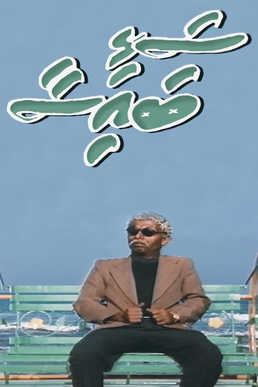Top Qs
Timeline
Chat
Perspective
Salhi Baisaa
Maldivian television series From Wikipedia, the free encyclopedia
Remove ads
Salhi Baisaa is Maldivian comedy drama television series created and developed by Mohamed Niyaz.[1][2] It stars Ahmed Nimal, Hassan Haleem, Ahmed Simau and Ibrahim Khaleel in main roles.[3] The series follows an old citizen, Ali, who brags about his fake accomplishment in his youth.[4][3]
Remove ads
Cast and characters
Main
- Ahmed Nimal as Ali
- Ahmed Simau as Qadhir/Sodhuree/Fareed/Razzaq/Javid/Dawood/Kahurab/Daroga
- Ibrahim Khaleel as Sobree/Rushdhee/Lomir/Sujau
- Hassan Manik as Sodhuree/Latheef
- Hassan Haleem as Ali Idhurees/Hassan/Jaufar
Recurring
- Fathimath Rameeza as Mariyam/Ziyadha/Zubeidha/Ithura
- Waleedha Waleed as Zainab/Leela
- Shadhiya as Qadhir's wife/Zubeidha/Saeedha
- Sharumeela as Samiya
- Muaz as Ali's friend/Jamsheedh
- Ibrahim Shakir as Zubeidha's father/Shakir
- Ahmed Naeem as Ali's friend
- Aadhanu as Ahmedfulhu
Guest
- Abdulla Zaki as Professor Jaruman Ali (Episode 3)[5]
- Waheedha as Sofiyya (Episode 4)
- Ahmedullah (Episode 4)
- Ibrahim Riyaz (Episode 5)
- Mohamed Shan (Episode 5)
- Abdulla Shameel (Episode 6)
- Fazuna Mohamed as Anna (Episode 6)
- Ziyad (Episode 6)
- Aminath as Jamsheed's girlfriend (Episode 7)
- Faruhadh (Episode 7)
- Ibrahim Rasheed as Nihan (Episode 8)
Remove ads
Episodes
Remove ads
Development
The series was developed based on a concept outlined by director Mohamed Niyaz. However, since he is not a professional screenwriter, Niyaz was assisted by lead actor Ahmed Nimal in drafting and finalizing the screenplay.[6] In its second season, Niyaz took over the task of screenwriting alongside the work of editing and directing the series.[6] The main concept of the series was Ahmed Nimal flexing about his fake accomplishments to Ibrahim Khaleel while relaxing on a swing located at the road end of Lonuziyaaraiy Magu.[7]
Soundtrack
Release and reception
The series was aired through Television Maldives, during the month of Ramadan.[6][7] It was widely accepted as one of the most "unusually funny" television series developed during the time.[6] The episodes released during 1992 was particularly noted by audience and critics as the "series best episodes".[6] It was noted as the most popular local television production aired in Ramadan of 1991 and 1992.[7]
Remove ads
References
Wikiwand - on
Seamless Wikipedia browsing. On steroids.
Remove ads

